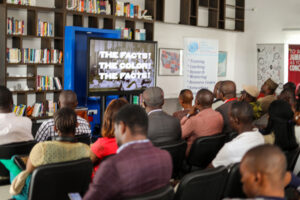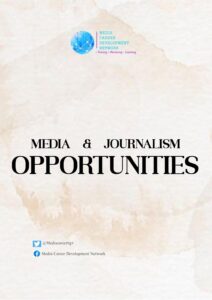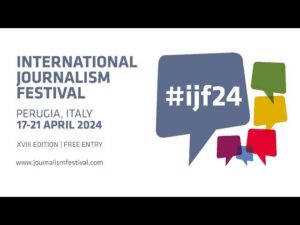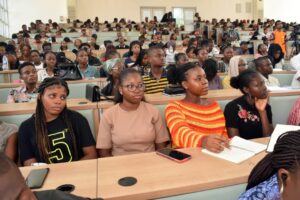For many journalists, the name Pulitzer is synonymous with excellent journalism practice based on the most prestigious global journalism award, Pulitzer prizes which include photography, literature, history, poetry, music, and drama.
Pulitzer who also founded the Columbia School of Journalism which opened in 1912 was however the publisher of the St. Louis Post-Dispatch and the New York World which reportedly circulated a million copies and opened the way for mass-circulation newspapers that depended on advertising revenue (rather than cover price or political party subsidies) and appealed to readers with multiple forms of news, gossip, entertainment and advertising.
He later became a leading national figure in the Democratic Party and was elected congressman from New York. He crusaded against big business and corruption and helped keep the Statue of Liberty in New York.
The life, publishing exploits and defence of freedom of expression of Pulitzer were the focus of the film entitled Joseph Pulitzer: Voice of The People shown in commemoration of the 2022 World Press Freedom Day (WPFD) at the American Corner, Ikeja, Lagos organised by Media Career Development Network (MCDN), and supported by the United States Consulate General.
A panel discussion by distinguished journalists followed the screening during which lessons for the media in Nigeria were shared.
Many journalists like Pulitzer risk their lives daily to save the world by uncovering hard truths – exposing political corruption and crusading injustices through investigative reporting without fear or favour.
As stated in Section 22, Chapter 2 of the 1999 Constitution: the press, radio, television and other agencies of the mass media shall at all times be free to uphold the fundamental objectives contained in this Chapter and uphold the responsibility and accountability of the Government to the people.
But are Journalists in Nigeria really upholding the responsibility and accountability of the government to the people? Do journalists crusade for the public good – are the voices of the people being heard by the government? What are the limitations of press freedom in Nigeria?

Speaking about what he learnt from the film, one of the panellists, Pelu Awofeso, Managing Director, ‘Travu’, said, Pultizer was very passionate about his career and was independent to pursue what he loved. He added that Pultizer had a creative understanding of what he needed to be and paid attention to everyday people.
The Travu’ Editor said that the leaders should set a good example for the people to follow, otherwise, the changes that people desire to see from the top will not come and the effect will not be seen on the public. “People do not have the capacity to make changes as desired. Until the leaders change, it will be hard to effect changes on the public,” he said.
Mrs. Ugonma Cokey; Deputy Director, Voice of Nigeria, while speaking on the influence of ownership and control in the Nigerian media noted, that, ownership structure has a huge influence on the media’s reports.
According to her, “there are things you can’t do where you work so that you don’t bite the hands that feed you. In Joseph Pulitzer’s case, he owned his own media outfit and at such, was able to go all out without any restraint, though driven by passion.”
Although, the ownership structure of media houses is a bane in news reporting, should this stop journalists from doing their job? When should a journalist draw the line?, the moderator; Mary Ann Duke Okon; TV host, Plus TV Africa asked.
Kunle Akinriade; Head Weekend Crime Desk, The Nation Newspaper while responding stated that, Journalists should be crusaders just like Joseph Pulitzer. “When you crusade, do it because you believe in the course and be committed. Do the right thing as much as it is within your power. Your environment should not deter you.” According to him, those who will make a meaningful change in society must not be afraid but be courageous.”
He, however, stressed the need for Journalists to protect themselves while crusading, noting that “safety comes first because only the living can tell a story. Think safety, use wisdom.”
On the issue of dealing with post-truths or alternative facts and sensationalism in journalism as raised by the moderator, Mrs Cokey noted that journalists should fact-check information; to ensure they verify again before they post any information.
“As media people, there is a lot to do in various spaces to ensure fake news does not spread. Do not mix emotions with stories, fact-check your information, again and again, to avoid spreading fake news,” she said.
Akinriade expressed worry about how Nigerians are served by quacks and amateurs claiming to be journalists, stating that no serious mainstream media organisation will sensationalise stories or mislead their readers. “Once you mislead your readers, they will not trust you anymore,” he stated.
However, a concern was raised on how media houses had degenerated into giving awards to politicians, compromising standards in seeking revenue to sustain the organisation.
In response, the Weekend Crime Editor noted that mass media in Nigeria is basically an industry engaged in a production process that is capital-intensive. The environment of operation is also fiercely competitive, which makes survival paramount. in this state of affairs. Moreover, the influence of the owner looms large thus putting the concept of objectivity in jeopardy.
He said, “the reliance on company’s sales is what obtains. What the media do now is a survival strategy of patronizing politics. Media organisations compromise because they want to sustain their business.”
“But be courageous to speak the truth to power irrespective of the editor’s interest or the organization and environment you find yourself in,” he added.
Awofeso, who likened the journalist he desires to see to the old ‘Guerilla’ journalists, urged today’s journalists to fearlessly report stories with the sole aim of informing their readers and for the public good. “There is a need for creativity and innovation to see the change we desire in the media.”
Freedom of the press belongs to the people of a nation, not to the owners of publications; as the purpose of the press is to keep in public spotlight every deliberation and decision that the government makes, since everything the government does is to be done on the people’s behalf.
Executive Director, Media Career Development Network, Lekan Otufodunrin urge journalists to imbibe the virtues of Pulitizer shown in the film and be the true voice of the people in their reporting.





